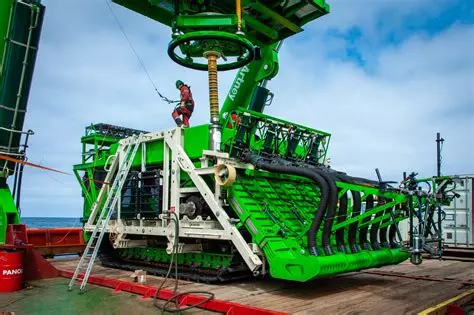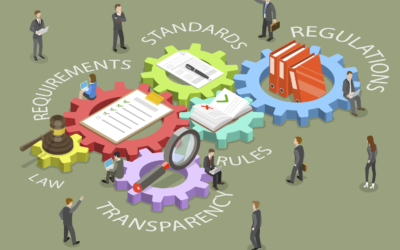Canada, a country with a mining-based economy, is under pressure from mining companies to allow mining of a new kind: that of the deep sea. What for ? Polymetallic modules that are rich in the metals needed for our “green” transition to electricity and digitally-powered economies.
The modules contain metals such as silver, gold, copper, manganese, cobalt and zinc, used for phones, computers, all sorts of electronics and, yes, even wind turbines .

We facilitate a workshop for companies, universities and citizens called the Digital Collage to show professionals and others the risks we are facing of an unsustainable transition to a digital and electric economy.
The danger, says Greenpeace, is to reproduce the mistakes made when mining for oil, gas and coal in mining precious metals.
Why is Deep Sea Mining a Hazard to the Environment ?
The polymetallic (sometimes called ‘manganese’) nodules on the soft sediments in the Clarion-Clipperton Zone in the Pacific Ocean, play a very important role. They provide hard-substrate habitat for immobile animals, such as corals and sponges, which in turn provide habitat for other animals. A famous example for such highly specialized associations is the deep sea ghost octopus (nicknamed ‘Casper’): it wasn’t until recently, that scientists discovered that these nodules function as breeding grounds for deep-sea ghost octopuses which lay their eggs on sponges that only grow on these nodules and then guard them, likely for years before hatching. Without these polymetallic nodules, the sponges would not be able to grow in the soft sediments – and without sponges ‘Casper’ the ghost octopus would not find a place to lay eggs and reproduce.
Nodule collection will remove the habitat of deep-sea fauna, and because the nodules take millions of years to form, the removal of habitat may effectively be permanent. It is unlikely that the deep-sea ecosystems would ever fully recover after Deep Sea Mining activity.
Find out more about GreenPeace Canada’s campaign to prevent private interests from mining our common sea floors for metals.
Wikipedia has a very documented article on deep sea mining of polymetallic modules.







